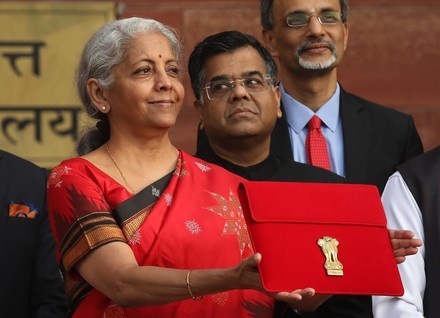|
Every Diwali since 2016 reminds Pranay Manjari Samal of an unfulfilled promise. A promise she had made to herself but was unable to realise. That year had been her mother’s last Diwali. “I had never seen my mother wear a gold necklace. It was a promise that I made to myself that the next year, I would get my mother a gold necklace. I did not know that my mother would not be there to see another Diwali,” she says.
This promise to herself had come from a conversation she had with her mother on Diwali in 2016. “I had bought gold bangles for my mother-in-law. When I showed them to my mother, she laughingly said that even though it had been she who had walked miles to bring me my lunch in school, the gold bangles were being gifted to my mother-in-law.
I know she never expected or wanted anything from me and she spoke jokingly, but at that time I made a quiet promise to myself that next year I will get her a gold necklace,” Manjari recalls.
Since then, Manjari is constantly reminded of all that she wanted to do for her parents but could not. “We grew up in a single salary home with my father giving us the best he could on a teacher’s earnings. He spent whatever he saved on giving me and my brothers a good education. He mortgaged his home, spent his gratuity and even commuted his pension for us. I took an educational loan for my higher education. My brothers also took loans for their education and I supported them as much as I could,” she says.
The problem, however, arose after her marriage. “Even though I had a candid conversation with my husband before marriage that I would be supporting my parents financially and he seemingly had no problems with that, the reality was quite different.Every time I sent money to my parents I was made to feel as if I was doing something wrong – almost as though I was stealing. Even though it was my own salary,” she says.
Her businessman husband did not contribute to running the family expenses. His earnings went into his business as did hers. “All my earnings went into his business and into running the house. I provided for the family. While my parents remained uncared for, I was taking care of his mother, paying for her surgery and other medical expenses,” Manjari recalls.
After her mother’s passing away, Manjari’s father’s health deteriorated and she asked him to come stay with her. “Though my husband had suggested that we bring him to Bangalore for some time, this was not liked by his family. I was constantly taunted and humiliated.
My sister-in-law and mother-in-law would keep asking why my father can’t stay with my brothers; why must I as a daughter have to look after him. When my husband remained silent in the face of all this it became too much for me and I decided to get a divorce,” she says.
Today, when she looks back, in the years that she was married, she noticed that she had spent a considerable amount while providing for her immediate family. Today, Manjari is asking why can she not give back to the father who gave up everything for her?
She feels that it is social mindsets that need to be changed to make it socially acceptable for daughters to be free to care for their parents. She has started a campaign to get banks and other financial institutions to help by bringing out social messaging communication that shows married daughters taking care of their elderly parents.
The law may have made is abundantly clear that daughters are as responsible for parents as sons, but mindsets have not changed. “My own parents told me to save for myself when I started earning. No one even thought that a daughter can take a savings scheme or a mutual fund investment for her parents old age. Parents will save for daughter’s marriage and son’s education, but no daughter will save for parent’s old age,” says Manjari.
After losing her mother and her marriage, Manjari is now taking care of her father and continuing with her job. She had to choose – marriage and in-laws or father. This is a dilemma that so many women face and make compromises with. Even though they are earning as much or more than their husbands, they cannot spend their money the way they want to. Financial independence means having the freedom to be able to care for your parents too!
Here are some ways you can remain in control of your money without having to ask anyone:
Hold your own fort
Marriage may be all about sharing, trust and love. However, managing your money is your prerogative, even if you discuss joint family commitments with your spouse. Keep your earnings and investments in your control.
Share the load, don’t carry it all
The household expenses should be shared but make sure that you do not end up carrying the entire load. Have the money conversation with your spouse and work out how you want to take care of the expenses. Whoever earns more should proportionately handle the bigger share of expenses.
Don’t lose yourself
Often women tend to put their own self after everyone else, especially when it comes to spending money. Remember, if you are happy and healthy, only then will you be able to keep your family happy. So spend on yourself to keep yourself happy. If it makes you happy to buy something for your parents, do so.
Invest
Invest your money so that you are always in a financially sound position. Find the right options for yourself and start investing. Mutual funds will see you through many a rainy day. Fix your financial goals and invest to get there.
Value of financial independence
Having money can give you security and independence. A solid corpus will see you through many a crisis. Having money ensures that you have the freedom to do as you deem fit – be it taking care of your parents financially or your time. If your parents are in a situation where they may not need your money, but rather your presence, money will ensure that you can take time off work to be there for them.
Want a safe space to discuss all things money? Join our community Life on my terms now!
Everything you need to know about Sukanya Samriddhi Yojana
Nov 13, 2024
Financial Resilience: Lessons from the Women of House of the Dragon
Sep 2, 2024
5 Things You Should Know Before Taking a Loan 👩💼💸
Aug 21, 2024
The Pink Tax: Why Women Pay More for the Same Products 💸👩
Aug 14, 2024
Budget 2024: A Win or a Loss for Women? 🎉💼
Jul 25, 2024
Unlocking your go to guide to navigate Gold 🌟
Aug 28, 2023








